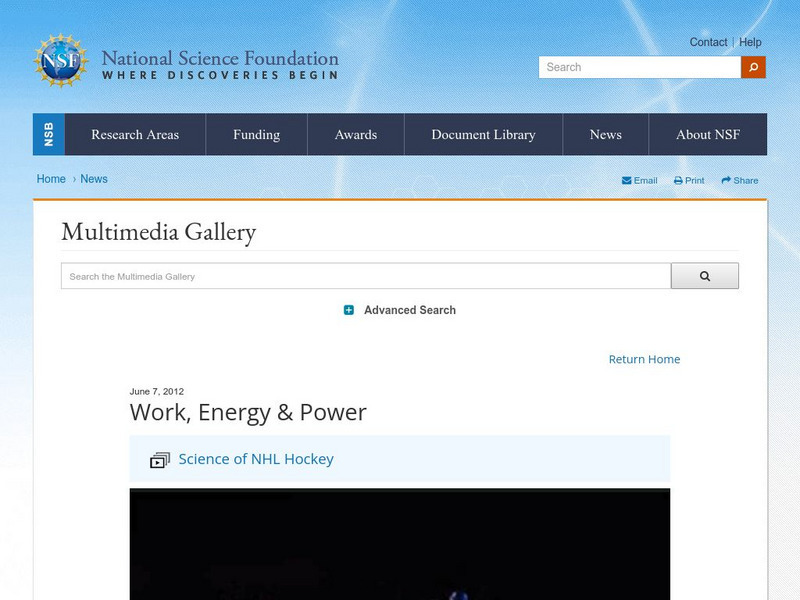National Science Foundation
National Science Foundation: Science of Nhl Hockey: Vectors
Explains why passing the puck in ice hockey is such an important skill. The puck is an example of a velocity vector and vectors can be added to determine the direction and speed of the puck. [4:28]
National Science Foundation
National Science Foundation: Science of Nhl Hockey: Work, Energy & Power
In order to generate a 100 mile-per-hour (160 kph) slapper, NHL players depend on three important physics concepts: work, energy and power. [5:15]
National Science Foundation
National Science Foundation: Science of Nhl Hockey: Reflexes & Reaction Time
An NHL goalie relies on his brain even more than his equipment in order to stop a puck with split-second timing. How a goalie does that is described in this video. [5:26]
National Science Foundation
National Science Foundation: Science of Nhl Hockey: Statistics & Averages
In order to be the best at their game, an NHL goalie must understand the statistics of their performance, and of their competition, e.g., the goalie save percentage and the goals against average. [5:56]


